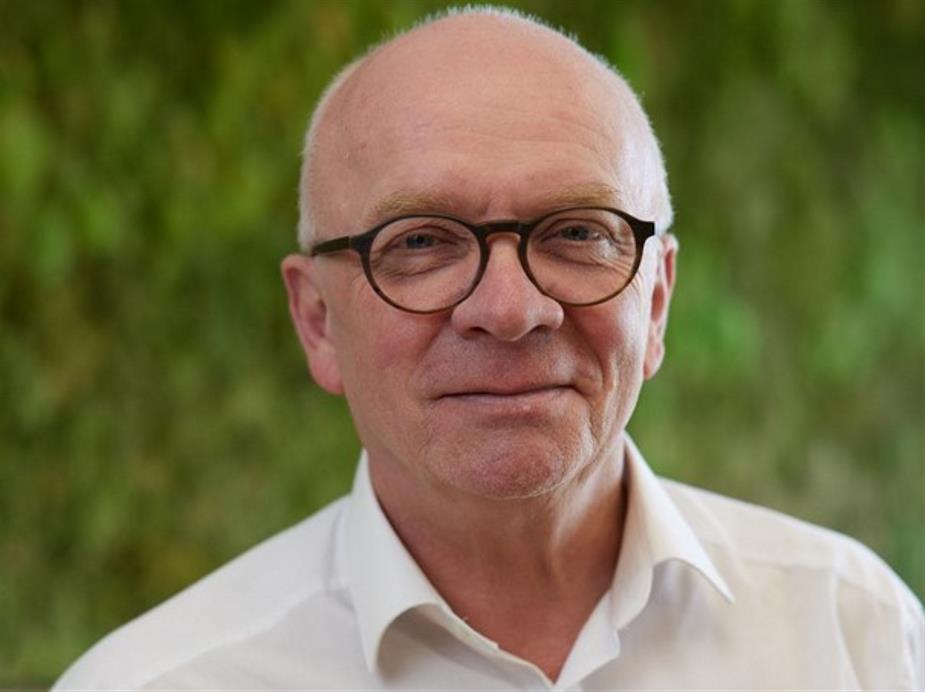Professor Luc de Witte aspires to develop a Centre of Expertise
27 September 2022
On 1 December 2021, Luc de Witte became the new professor in Technology for Health. By now he has conducted dozens of conversations inside and outside THUAS and has taken the first steps towards large-scale regional...

On 1 December 2021, Luc de Witte became the new professor in Technology for Health. By now he has conducted dozens of conversations inside and outside THUAS and has taken the first steps towards large-scale regional collaborations. During his inaugural lecture on 6 October, he will focus on the approach of that collaboration: ‘If you ask me, healthcare technology is not just about solving problems. It's also there to make life more beautiful or pleasant.’
‘The Hague was completely new to me, but there is so much happening here,’ Luc begins. ‘So many research universities and universities of applied sciences just a stone's throw away, cooperative municipalities, startups and initiatives on healthcare innovation: I get very excited about that. I would like to inject some of that enthusiasm into the university of applied sciences. Contributing to the professional field is not a major priority in healthcare technology, but people do look at us with high hopes. My goal for this research group is to become the knowledge partner that the outside world is waiting for.’
Good start
To achieve that goal, Luc has already taken many steps. ‘We now participate in the academic workshop Technology for at Home,’ he explains. ‘Here we are working with various organisations to improve the provision and funding of home aids. Discussions are also ongoing with healthcare organisations, the municipality of The Hague, companies and other relevant parties about forming a healthcare innovation alliance, and we are assessing with the Regional Training Centre Mondriaan how we can work together more. There are all kinds of startups we can contribute to, and healthcare organisations have many questions and ideas around innovation. And, very exciting: a grant application has been made for a joint programme with 28 partners in the region. Healthcare organisations, knowledge institutions and municipalities are joining and want to co-invest. My dream is for this network to grow into a Centre of Expertise. That we can really address the bigger issues in this area as a region, with shared commitment and shared governance.’
Encouraging students
But of course, cooperating in networks only becomes valuable with concrete research projects. Here we have also taken our first steps. ‘For example, one company has developed a sensor to measure the walking speed of elders. Walking more slowly is actually an indication of deteriorating health. Students from the Engineering Physics degree programme created a nice test set-up to test the technology: how reliable are the measurements? And at what level of deterioration does it make sense to intervene? This way, we want to involve students much more in the professional field. And we also want to encourage them to take initiative and further develop their ideas in a startup. The more they interact with entrepreneurs, the more likely they are to take the plunge themselves.’
Richer starting point
So the new Technology for Health professor sees mainly many opportunities. ‘That's also part of this profession, I think. In healthcare, we often tell each other how difficult everything is. And that we should use technology to solve problems. But I find that such a poor starting point! I look at technology as a way to provide opportunities that make life more enjoyable or easier. The other day, I spoke to someone from a Korean company that works with virtual reality. They want to offer people with dementia an experience as if they were in a concert hall. Not to change anything about dementia or as part of care, but because it’s so nice to attend a concert. I believe in that perspective, that approach. Not only problems as a starting point, but also the beautiful experiences in everyday life.’
Inaugural lecture: 6 October
Luc de Witte presents his detailed plans for the research group during his inaugural lecture on 6 October. The lecture will take place during a symposium on the role of technology as a tool for an inclusive society and sustainable care. Want to attend? Check this page for more information and to register >>